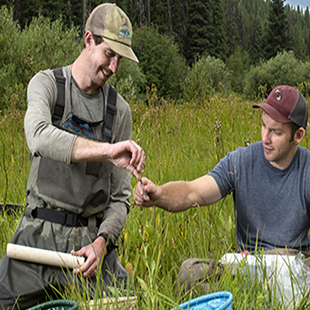Prospective Students
Thank you for your interest in my research program.
My website should have given you a good idea of the research questions I work on. The purpose of this letter is to give you some additional information on my general approach to science and to advising that might help you to decide if you would enjoy working with me.
I believe that graduate students should have a lot of latitude in selecting research questions. A successful research project will require very hard work in many areas, from tracking down funding, to collecting data, to learning and applying analytical methods, to reworking a manuscript until it is just right. This effort is possible and worthwhile only when you are going after a question that is personally compelling. The catch is that neither I nor anyone else can tell you what that question is. What I can do is work with you to evaluate and refine potential topics and approaches, and to find resources (e.g., literature, methods, people) that, along with your own creativity, will let you identify your question.
I have no expectations regarding the system a student chooses to work on or research methods. I am far more interested in seeing a student go after a challenging question with enthusiasm and diligence than I am in working with students whose interests are identical to mine. However, some overlap in our interests is necessary for me to be an effective advisor.
In addition to being self-motivated and hard working, I expect students to be excellent communicators. I believe that there are three skills critical to meeting this objective: (1) an ability to translate research ideas and results into a written form that is clear, engaging, and concise (e.g., for proposals and manuscripts), (2) an ability to present research questions and results orally in a way that is clear, engaging, and concise (e.g., for your proposal defense or presentations at professional meetings), and (3) an ability to discuss research ideas and methods with me and other colleagues in a productive manner. You will have many opportunities to develop these skills and you will receive constructive criticism in all of these areas. Science exists in a social context, so proficiencies in communicating your science and seeking out, filtering, and applying advice are fundamental to the process. If you see these elements as secondary to the “actual” research, then we may not be a good match.
I hope this information is useful to you as you consider options for graduate work. Please feel free to contact me for clarification on anything. If you are interested in working with me, then please send me an e-mail describing your research interests, experience, and why you think you would be a good fit in my lab. Also be sure to tell me when you are looking to start graduate school and your degree objective (i.e., MS or PhD). From there we can arrange a time to talk on the phone.
